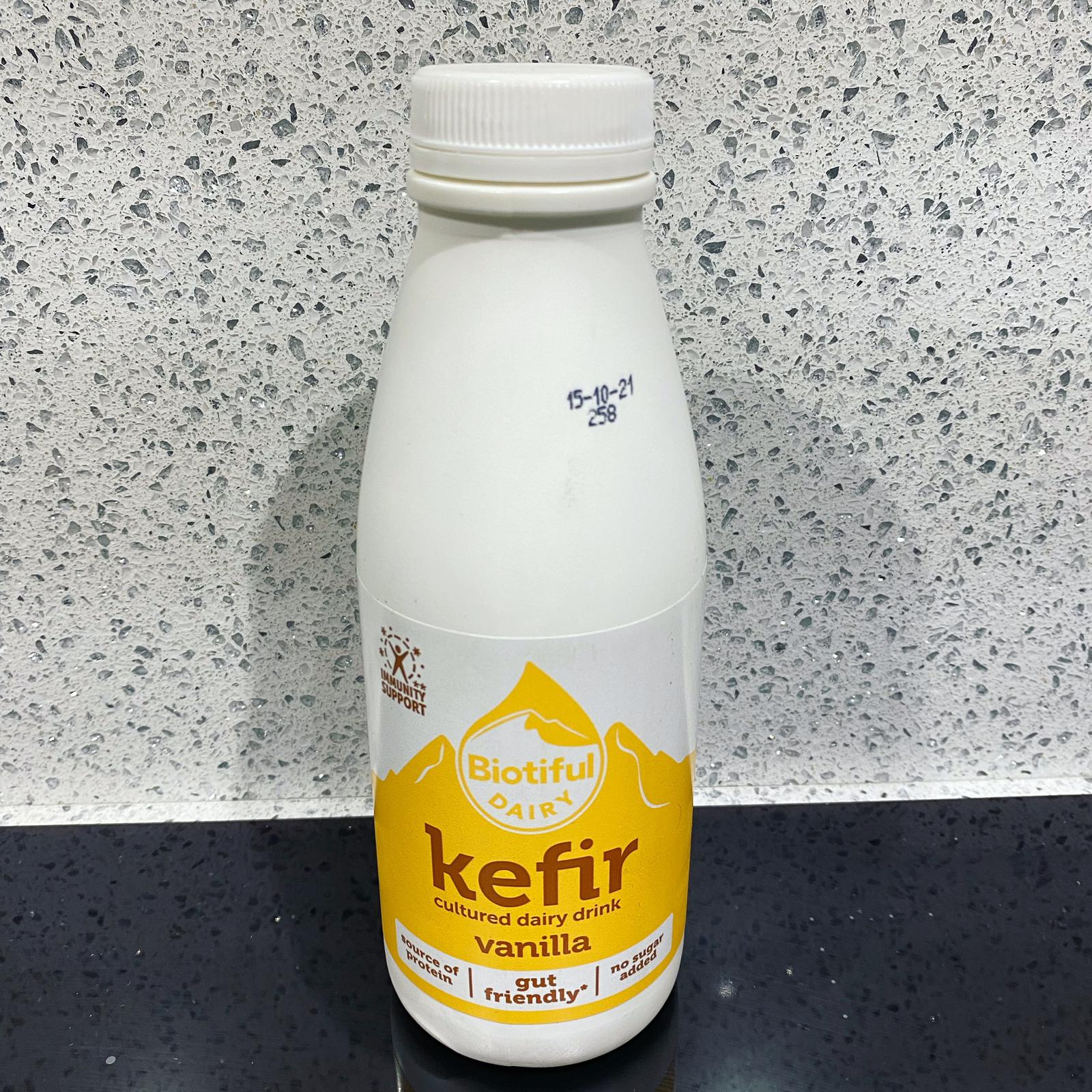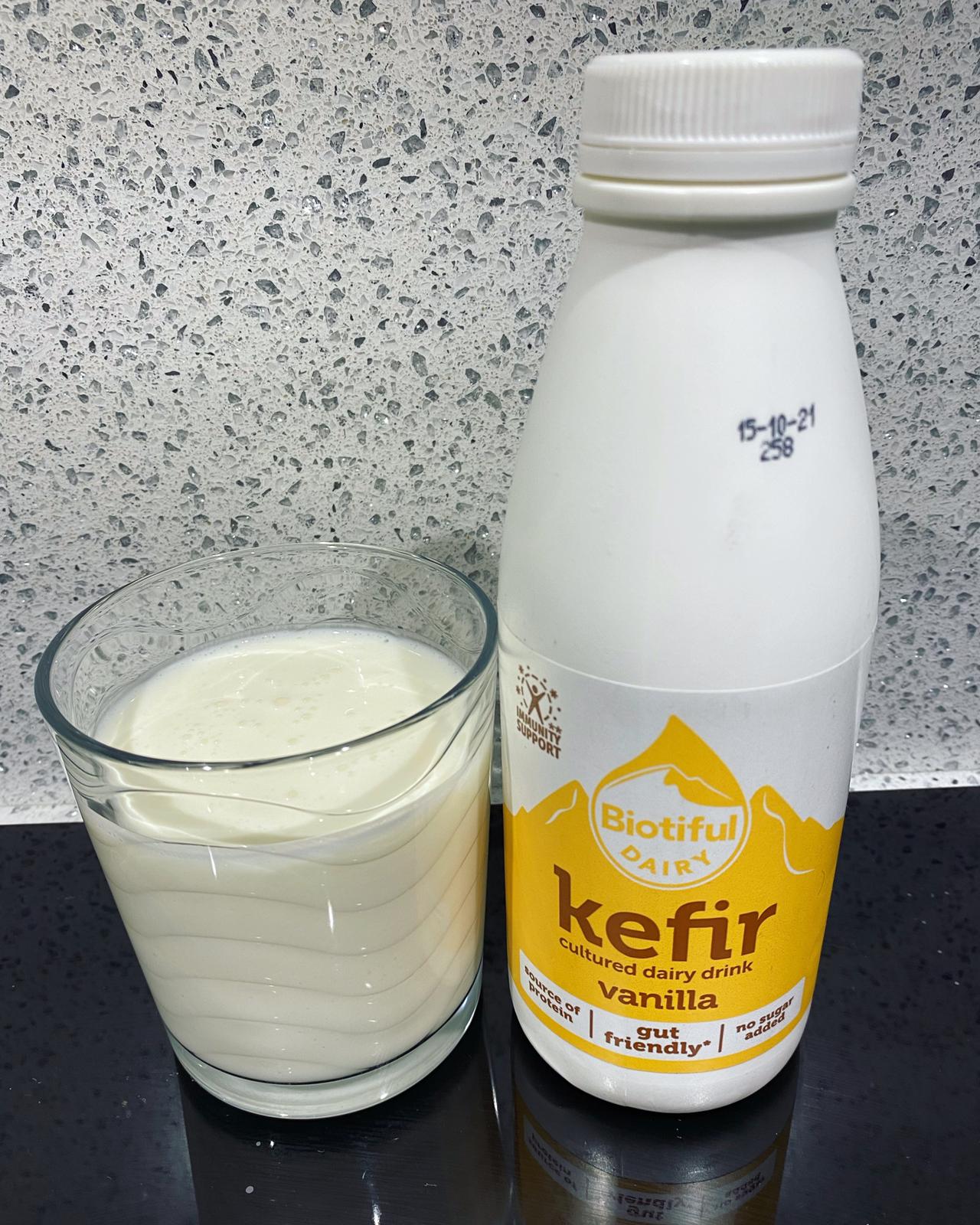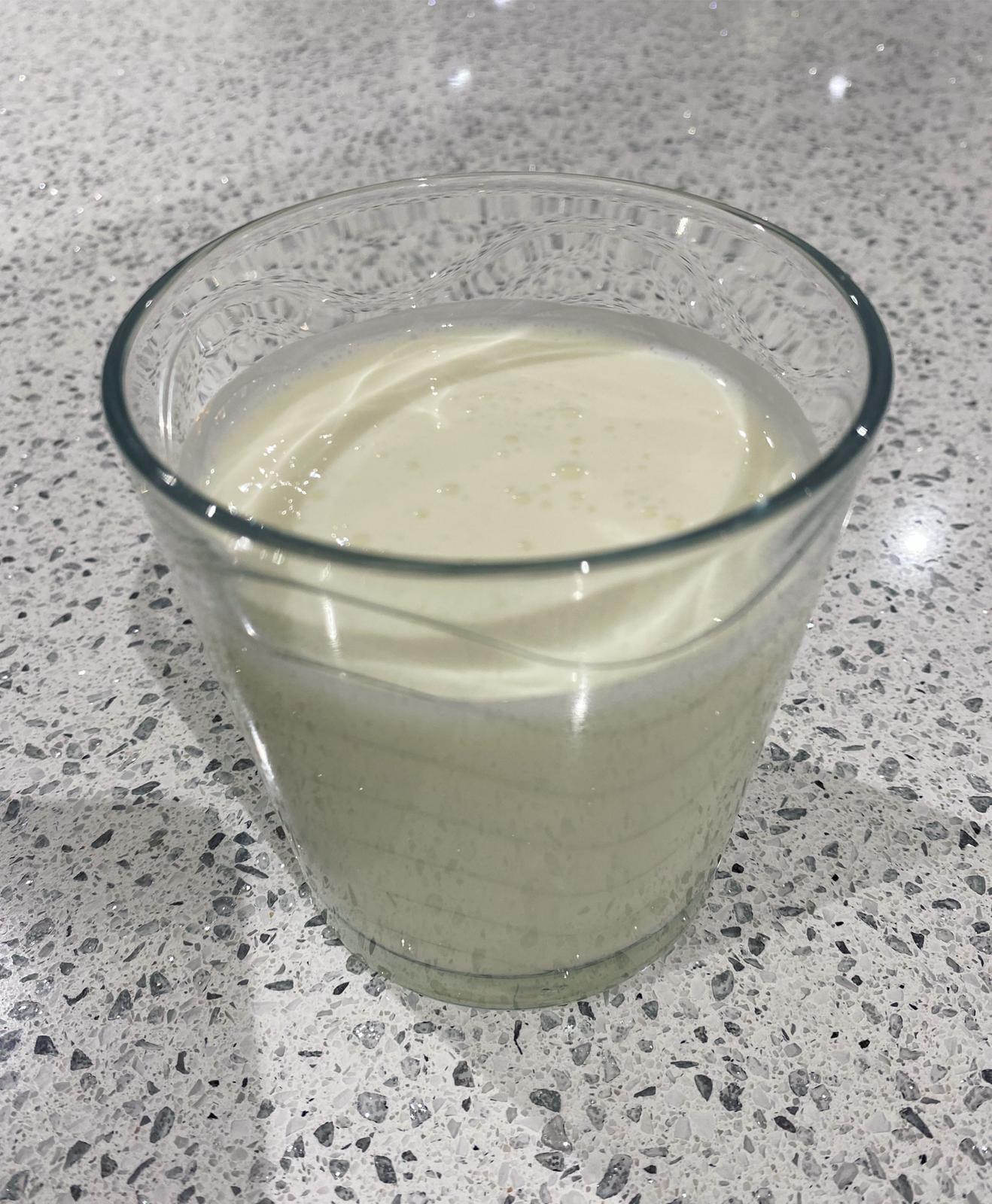Kefir Yoghurt: Health Benefits, Probiotics & How to Add It to Your Diet
Kefir yoghurt, or kefir milk as it is also widely known, is a fermented milk drink traditionally made with cow’s milk or goat’s milk. This probiotic-rich drink has been steadily gaining popularity due to its numerous health benefits, which include improving gut health, promoting weight loss, and boosting bone health.
But what exactly is kefir? How is it different from regular yoghurt or milk? And most importantly, is kefir good for you? Let’s dive into everything you need to know about kefir yoghurt and its potential to enhance your well-being.
This post contains affiliate links, which means that I may receive a commission if you make a purchase using these links. As an Amazon Associate I earn from qualifying purchases.
The information in this post is for information purposes only and should not be taken as any sort of medical or nutritional advice. Always do your own research and seek professional advice when required.
What is Kefir Yoghurt?
Kefir yoghurt is a fermented milk drink made by combining milk with kefir grains. These grains are clusters of beneficial bacteria and yeast that ferment the milk, creating a creamy, tangy drink with a texture similar to drinkable yoghurt. Unlike traditional yoghurt, kefir contains a more diverse range of probiotics and nutrients.
During the fermentation process, the beneficial microorganisms in kefir grains break down the sugars in the milk, resulting in a product that is lower in lactose and easier to digest. After fermentation, the grains are strained out, but they can be reused to make new batches of kefir.
What Are Kefir Grains?
Despite their name, kefir grains are not actual grains like wheat or barley. They are small, cauliflower-like clusters made up of a symbiotic culture of bacteria and yeast (also known as SCOBY). These grains are what give kefir its rich probiotic content.
When added to milk, kefir grains initiate fermentation, transforming the milk into a nutrient-dense, probiotic-packed drink. The unique combination of beneficial microbes in kefir sets it apart from other fermented foods.
The Health Benefits of Kefir Yoghurt
Is kefir good for you? The short answer is yes! Kefir is widely regarded as one of the healthiest fermented foods available. It offers a wide range of benefits for the body, from improved digestion to enhanced immune function. Let’s break down some of its most notable health benefits:
1. Rich in Probiotics for Better Gut Health
Kefir yoghurt contains more probiotics than regular yoghurt, making it a powerhouse for improving gut health. Probiotics are beneficial bacteria that help maintain a healthy balance in the gut, supporting digestion and overall well-being.
Many people drink kefir to alleviate digestive issues such as IBS (Irritable Bowel Syndrome), bloating, and constipation. My husband Dan started drinking kefir yoghurt to manage his IBS symptoms. It’s important to build up consumption slowly and consult a doctor if you have underlying health conditions.
2. Bone Health Support
Kefir milk is an excellent source of calcium and vitamin K2, two nutrients that are essential for maintaining strong bones. Calcium is crucial for bone density, while vitamin K2 improves the body’s ability to use calcium effectively. Western diets often lack adequate vitamin K2, so adding kefir to your diet can help bridge this nutritional gap.
3. Antibacterial Properties
Studies have shown that kefir drink contains probiotics with antibacterial properties. It also contains a unique compound called kefiran, which has been found to inhibit the growth of harmful bacteria.
4. Potential Cancer Protection
Preliminary studies suggest that probiotics in kefir may help boost the immune system and reduce the growth of certain cancer cells. However, more research is needed to confirm these effects.
Other Reported Benefits of Kefir
In addition to its well-documented probiotic content, kefir is believed to offer several other benefits, including:
- Low in Lactose: The fermentation process significantly reduces the lactose content, making kefir easier to digest for those who are lactose intolerant.
- May Improve Allergy and Asthma Symptoms: Some studies suggest that the anti-inflammatory properties of kefir could help alleviate symptoms of asthma and allergies.
- Supports Weight Loss: Kefir is a low-calorie drink that can help promote a feeling of fullness, making it easier to maintain a healthy weight.
- May Reduce Inflammation: People with chronic conditions such as IBD (Inflammatory Bowel Disease) or rheumatoid arthritis may benefit from kefir’s anti-inflammatory properties.
"Gut health is everything, it's the second brain, where many of our hormones are produced."
Are There Any Side Effects of Kefir Yoghurt?
While kefir yoghurt is generally safe and well-tolerated, it’s best to start with a small amount and gradually increase your intake. This allows your body to adjust to the influx of probiotics. Some people may experience mild digestive issues, such as bloating or diarrhea, when they first start drinking kefir.
If you have a history of food intolerances, digestive disorders, or allergies, consult your GP or dietitian before incorporating kefir milk into your diet.
Where to Buy Kefir Yoghurt
If you’re wondering where to buy kefir, supermarkets like Tesco carry a variety of kefir products. We’ve had great success with the Biotiful Dairy range, particularly their vanilla-flavored kefir drink. It’s a delicious alternative to regular yoghurt, with a thinner consistency and a slightly tangy taste.
You can also find kefir grains online if you want to try making your own kefir at home. Homemade kefir is a cost-effective way to enjoy this healthy drink while customising it to your taste preferences.
How to Add Kefir Yoghurt to Your Diet
Incorporating kefir yoghurt into your daily routine is easy. Here are a few simple ways to enjoy it:
- Morning Smoothies: Blend kefir with fresh fruit and honey for a nutritious breakfast smoothie.
- Salad Dressings: Use kefir as a base for creamy salad dressings.
- Cooking and Baking: Substitute kefir for buttermilk or yoghurt in recipes.
- Straight Up: Drink it on its own as a healthy snack or post-workout recovery drink.
Would I Recommend Kefir Yoghurt?
Absolutely! While the benefits of kefir may not be immediately noticeable, the science-backed health advantages make it worth a try. I’ve found that regular consumption of kefir yoghurt has improved my digestion and energy levels. My husband Dan’s experience with reduced IBS symptoms has also reinforced my belief in the power of probiotics.
If you’re curious about kefir milk, give it a go and monitor how your body responds. Remember to start slow and listen to your body. I plan to do a follow-up post in the future to discuss any long-term improvements and how Dan’s IBS management continues with kefir.
Conclusion
Kefir yoghurt is a versatile, nutrient-packed drink with a long list of health benefits. From improving gut health to supporting bone density, it’s a valuable addition to any diet. Whether you buy it from Tesco or make it yourself, kefir is a tasty and functional food that can help you feel your best.
FAQs About Kefir Yoghurt
- What is kefir milk?
Kefir milk is a fermented drink made by adding kefir grains to milk. It’s rich in probiotics and nutrients, making it great for digestion and overall health. - Is kefir good for you?
Yes! Kefir is packed with probiotics, vitamins, and minerals that support gut health, bone health, and the immune system. - Can you buy kefir at Tesco?
Yes, Tesco offers a wide range of kefir products, including Biotiful Dairy kefir drinks in various flavors. - What are kefir grains?
Kefir grains are clusters of beneficial bacteria and yeast that ferment milk, turning it into kefir. - How often should you drink kefir?
Start with a small amount daily and gradually increase your intake. Most people consume around 1 cup per day for optimal health benefits.
Share this article
Written by : Petal Cottage
Follow Our Socials
A quick overview of the topics covered in this article.
- What is Kefir Yoghurt?
- What Are Kefir Grains?
- The Health Benefits of Kefir Yoghurt
- Other Reported Benefits of Kefir
- "Gut health is everything, it's the second brain, where many of our hormones are produced."
- Are There Any Side Effects of Kefir Yoghurt?
- Where to Buy Kefir Yoghurt
- How to Add Kefir Yoghurt to Your Diet
- Would I Recommend Kefir Yoghurt?
- Conclusion







